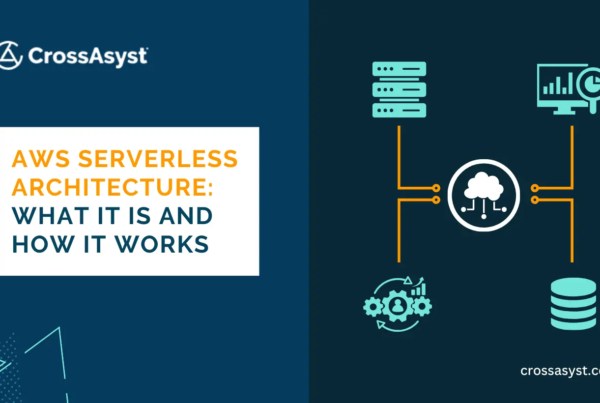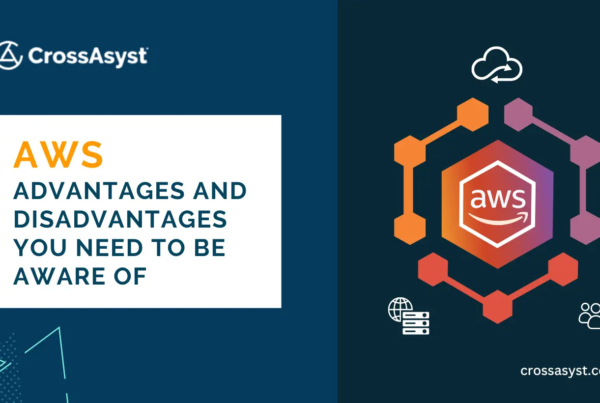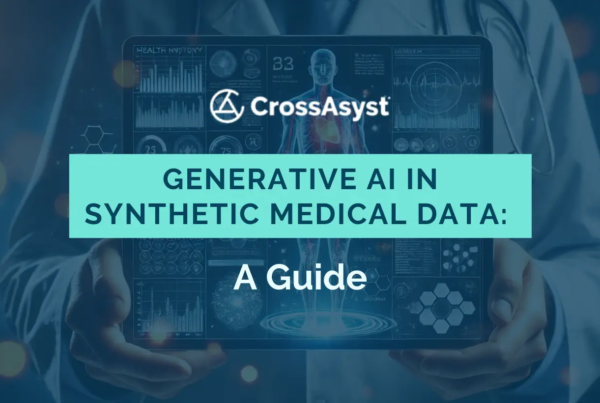Generative AI has been revolutionizing various aspects of healthcare in the recent past. One among these to get a much needed shot in the arm from generative AI is the pharmaceutical industry, especially in the domain of drug discovery.
Let’s take a detailed look at how the power of generative AI is transforming drug discovery and the impact this has on the healthcare system.
Table of Contents
Importance of Drug Discovery
Let’s first begin by understanding why drug discovery plays such an important role in healthcare.
Improving Public Health
Developing new treatments for diseases enhances patient outcomes by providing more effective therapies. It helps reduce mortality rates and improves the quality of life for individuals suffering from various medical conditions.
Addressing Unmet Medical Needs
Drug discovery targets conditions with no current effective treatments, offering hope for patients with rare or neglected diseases. This is crucial for providing care to underserved populations and addressing gaps in medical treatment.
Economic Impact
The pharmaceutical industry significantly contributes to economic growth. Successful drug discovery and development generate substantial revenue, create jobs, and attract investments in research and development.
Scientific Advancement
Drug discovery drives innovation in medical research and technology. It leads to the development of new methodologies, the discovery of novel biological pathways, and the advancement of scientific knowledge.
Global Health
Drug discovery contributes to combating global health challenges, including pandemics and rare diseases. It plays a vital role in developing vaccines and treatments that can be deployed worldwide to control and eradicate diseases.
Key Applications of Generative AI in Drug Discovery
Let’s now dive deeper into the key applications of AI in drug discovery.
 Molecular Design and Optimization
Molecular Design and Optimization
Generative AI algorithms are revolutionizing molecular design by creating novel molecular structures that traditional methods might overlook. These models simulate chemical reactions and generate compounds with specific desired properties.
This significantly expands the chemical space, offering a broader pool of viable drug candidates. By doing so, AI enhances the efficiency of the drug discovery process, allowing researchers to identify promising compounds more quickly and accurately.
Success Stories
Generative AI has already demonstrated its potential in real-world applications. For example, Insilico Medicine utilized AI to discover a small molecule inhibitor of CDK8, a promising treatment for cancer. This breakthrough highlights how generative AI can accelerate drug discovery by optimizing molecular design processes.
Impact on Traditional Drug Discovery
The integration of AI in molecular design not only speeds up the discovery process but also reduces costs and resource expenditure. Traditional drug discovery often involves a lengthy and expensive trial-and-error approach.
In contrast, generative AI can quickly iterate through numerous molecular designs, predicting their effectiveness and safety profiles. This shift allows pharmaceutical companies to focus their efforts on the most promising candidates, streamlining the path from initial discovery to clinical trials.
Broader Chemical Space Exploration
Generative AI enables the exploration of chemical spaces that were previously inaccessible or unexplored. This capability is crucial for discovering new classes of drugs that can target diseases more effectively.
By generating and testing a wide array of molecular structures, AI can uncover novel compounds with unique mechanisms of action, providing new avenues for therapeutic intervention.
Future Prospects in Molecular Design
The future of molecular design with generative AI looks promising, with continuous advancements in AI technologies and computational power. As AI models become more sophisticated, their ability to predict molecular behavior and interactions will improve, leading to even more efficient and precise drug discovery processes.
This progress will not only enhance the development of new drugs but also contribute to personalized medicine, where treatments can be tailored to individual genetic profiles and specific disease characteristics.
Target Identification and Validation
Generative AI models are transforming target identification by analyzing vast datasets, including genomic, proteomic, and transcriptomic data. These models can predict and validate biological targets for new drugs by identifying key molecular interactions and pathways involved in disease processes.
This predictive capability enables researchers to pinpoint the most promising targets with greater accuracy, enhancing the initial stages of drug discovery.
Enhancing Accuracy and Efficiency
Leveraging AI significantly reduces the time and cost associated with target identification and validation. Traditional methods can be labor-intensive and time-consuming, often involving numerous experimental trials.
In contrast, AI models can rapidly process and analyze data to identify viable targets, streamlining the discovery process. This precision in targeting increases the likelihood of clinical success, as the drugs developed are more likely to interact effectively with the intended biological targets.
Integrating Multi-Omics Data
Generative AI’s ability to integrate multi-omics data (genomics, proteomics, metabolomics, etc.) provides a comprehensive view of biological systems. This holistic approach allows for a more nuanced understanding of disease mechanisms and potential intervention points.
By considering multiple layers of biological information, AI can uncover novel targets that might be missed using single-dataset analyses.
Case Studies and Applications
Several pharmaceutical companies have successfully implemented AI for target identification. For instance, Recursion Pharmaceuticals uses AI to identify novel targets and pathways for diseases with high unmet needs.
This application has led to the discovery of new therapeutic targets and accelerated the preclinical development phase.
Reducing Attrition Rates
One of the significant challenges in drug discovery is the high attrition rate during clinical trials. AI-enhanced target identification helps mitigate this issue by ensuring that only the most promising targets proceed to the development stage.
By improving the initial target selection process, AI reduces the likelihood of late-stage failures, saving time and resources.
Future Directions
As AI technologies continue to evolve, their integration into target identification and validation will become even more sophisticated. Future advancements may include more refined predictive models capable of simulating complex biological environments, leading to even more precise target identification.
This evolution will further enhance the efficiency and success rates of drug discovery initiatives.
Drug Repurposing
Generative AI is a powerful tool for identifying new therapeutic uses for existing drugs. By analyzing existing drug data and understanding biological pathways, AI models can predict alternative applications for approved drugs.
This process, known as drug repurposing, offers a cost-effective approach to drug development because it leverages the known safety profiles of existing medications, reducing the time and expense associated with bringing new treatments to market.
AI Models in Drug Repurposing
The ability of AI to quickly process and analyze large datasets makes it invaluable in drug repurposing efforts. AI models can identify patterns and connections within data that might be missed by traditional methods.
This capability is particularly useful for finding new treatment options for diseases without existing therapies.
Advantages of Drug Repurposing
Drug repurposing is advantageous because it significantly shortens the development timeline. Since the safety profiles of existing drugs are already well-established, the regulatory approval process can be faster and less costly compared to developing a new drug from scratch.
This approach also reduces the financial risk associated with drug development, as repurposed drugs have already demonstrated some level of efficacy and safety.
Case Studies and Real-World Examples
Successful examples of drug repurposing through AI include the identification of new uses for drugs such as thalidomide, initially used to treat morning sickness and later found effective in treating multiple myeloma.
Another example is the repurposing of sildenafil, initially developed for hypertension and later found to treat erectile dysfunction effectively.
Enhancing Drug Repurposing with Multi-Omics Data
AI models can integrate data from various sources, including genomics, proteomics, and metabolomics, to provide a comprehensive understanding of drug actions and potential new uses. This multi-omics approach enhances the ability to repurpose drugs effectively by uncovering deeper insights into drug-disease interactions.
Future Prospects in Drug Repurposing
The future of drug repurposing with AI looks promising, with potential applications expanding as AI technologies advance. Improved algorithms and computational power will enhance AI’s ability to predict new uses for drugs, potentially leading to breakthroughs in treating complex and rare diseases.
Benefits of Generative AI in Drug Discovery
As expected, the application of generative AI has many benefits in the field of drug discovery. Here’s a more detailed look at these benefits.
 Speed and Efficiency
Speed and Efficiency
Generative AI enhances the speed and efficiency of drug discovery by automating various processes, thereby reducing development timelines and costs.
Accelerating Drug Development Timelines
Generative AI significantly reduces the time required for drug discovery. By automating various stages of the process, AI allows researchers to quickly generate and test new hypotheses, leading to faster development timelines.
Cost Reduction
Automation and improved efficiency lead to substantial cost savings. By minimizing the need for labor-intensive tasks and reducing the likelihood of costly errors, generative AI makes drug development more economical.
Expanding Chemical Space
Generative AI allows researchers to explore a broader range of chemical structures and compounds, increasing the potential for discovering novel and effective drugs.
Exploring Novel Molecular Structures
Generative AI enables the exploration of new and diverse molecular structures that were previously inaccessible. This expanded chemical space increases the likelihood of discovering effective drug candidates.
Enhancing Chemical Diversity
AI models can generate a wide variety of chemical compounds, enhancing the diversity of potential drug candidates and improving the chances of finding successful treatments.
Personalized Medicine
Generative AI supports the creation of personalized medicine by tailoring treatments to individual genetic profiles, improving patient outcomes.
Customizing Treatments for Individual Patients
Generative AI allows for the development of personalized therapies tailored to individual patient profiles. By analyzing genetic and phenotypic data, AI can help design drugs that are more effective for specific patient groups.
AI in Precision Medicine
AI-driven models contribute to precision medicine by identifying the best treatment options for patients based on their unique biological characteristics, leading to better clinical outcomes.
Challenges and Solutions
As beneficial as generative AI is in drug discovery, it is not without challenges. Here are some of those challenges, and solutions for them.
Data Quality and Bias
Ensuring the integrity and representativeness of data is crucial for the success of AI models.
Ensuring High-Quality Data
The accuracy of generative AI models relies heavily on the quality of the input data. High-quality, diverse datasets are essential for making reliable predictions and achieving successful drug discovery outcomes.
Mitigating Bias in AI Models
AI models can inherit biases from their training data, leading to skewed results. Implementing strategies to identify and mitigate these biases is crucial to ensure fair and accurate outcomes, preventing potential disparities in healthcare.
Ethical and Privacy Concerns
The ethical use of AI and the protection of patient data are paramount in drug discovery.
Data Privacy Issues
Generative AI relies on large datasets, which can raise significant privacy concerns, especially when dealing with sensitive patient data. Robust data privacy measures are necessary to protect individual information and maintain trust.
Ethical Use of AI in Drug Discovery
Ethical considerations, such as ensuring transparency and accountability in AI-driven decisions, are crucial. Establishing ethical guidelines for AI use in drug discovery helps maintain public trust and integrity in the research process, promoting responsible innovation.
Standardization and Collaboration
Standardized protocols and interdisciplinary collaboration are essential for maximizing the potential of AI in drug discovery.
Developing Industry Standards
The lack of standardized protocols can hinder the effective implementation of generative AI. Developing industry-wide standards is necessary to ensure consistency, reliability, and reproducibility in AI applications across the pharmaceutical industry.
Facilitating Interdisciplinary Collaboration
Generative AI fosters collaboration between data scientists, biologists, chemists, and other experts. Effective interdisciplinary collaboration is essential for harnessing the full potential of AI, leading to innovative solutions and breakthroughs in drug discovery.
Future Prospects for Generative AI in Drug Discovery
Generative AI has already transformed healthcare in multiple ways. Here’s what the future of this technology looks like in drug discovery
Emerging Trends and Innovations
The future of generative AI in drug discovery is bright, with continuous advancements in AI models and computational power driving innovation. Here are some notable future trends.
- Improved Protein Folding Predictions: Enhancements in AI algorithms are making protein structure prediction more accurate, which is crucial for understanding disease mechanisms and designing effective drugs.
- Multi-Modal AI Platforms: The integration of various data types (e.g., genomic, proteomic, and clinical data) into single AI platforms is revolutionizing the ability to generate comprehensive insights and identify novel drug candidates.
Long-term Impact on Healthcare
Generative AI has the potential to significantly transform healthcare by making drug discovery faster, cheaper, and more efficient. Here are some key impacts we can expect to see in the future.
- Personalized and Effective Treatments: AI-driven drug discovery can lead to the development of personalized therapies tailored to individual patient profiles, enhancing treatment efficacy and reducing adverse effects.
- Global Health Improvement: Faster and more cost-effective drug discovery processes will make advanced treatments more accessible globally, improving patient outcomes and addressing unmet medical needs across diverse populations.
Conclusion
Even as generative AI amaze us with its potential across healthcare as an industry, it is only through constant research and development that this technology can continue to break new ground.
At CrossAsyst, we recognize this fact, which is why our custom software development teams are hard at work pushing the boundaries of what this new super-technology can do in the software used by the healthcare industry and other business verticals.
With over 14 years of experience, our HIPAA compliant software development teams will soon offer a full suite of AI-powered custom software solutions guaranteed to revolutionize healthcare technology.
To learn more about CrossAsyst and our custom software services, book a meeting with us today!




